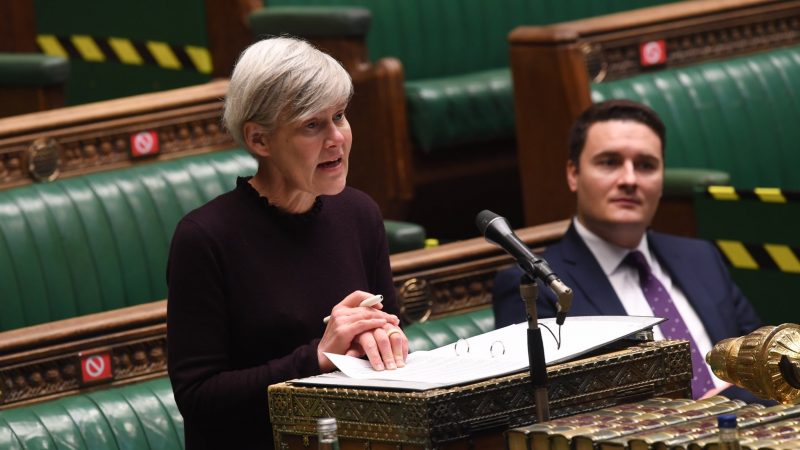
Kate Green has criticised the Education Secretary for giving rise to “more weeks of anxiety for young people and their teachers” as he outlined that guidance from exam boards on assessments will only be available at the end of the spring term.
Responding to Gavin Williamson in parliament today, the Shadow Education Secretary argued that he had already caused “damaging and utterly unnecessary uncertainty” by only delivering this statement 52 days after exams were cancelled.
“The Secretary of State could have avoided this by listening to Labour and put a clear plan B in place months ago,” she told MPs this morning. “But instead he was, once again, slow to act, with millions of young people paying the price.”
Labour called on Williamson in November last year to set out a “credible” plan for exams as Covid cases rose, including a “plan B” in the event that school exams were cancelled as they were in the 2019/2020 academic year.
“Now, for the first time, he has said he trusts teachers,” Green said. “I cannot help but wonder why he only trusts teachers when there is a chance to make them responsible for what happens with exams, rather than his department.”
Williamson confirmed in the Commons this morning that “this year’s students will receive grades determined by their teachers with assessments covering what they were taught and not what they have missed”.
He said “teachers can choose a range of evidence to underpin their assessments” including coursework, in-class tests, the use of optional questions provided by exam boards and mock exams, with guidance to be set out by his department.
The government minister said grade descriptions would be distributed by exam boards and that these would be “broadly pegged to performance standards from previous years” so that both students and teachers both know what to expect.
But Green argued: “He claims to have solved the problem, but guidance from exam boards will not be available until the end of the spring term, meaning more weeks of anxiety for young people and their teachers.”
She welcomed the “wide range of evidence” to be used in deciding grades but challenged him to explain how the Department for Education would ensure that awards were fair and consistent between different schools.
“Is he not concerned that the lack of common evidence, and the lack of a link to an existing grade distribution, puts enormous pressure on schools and colleges while creating a huge challenge in ensuring fairness?” she asked.
Green also pointed out that funding in the education recovery plan, announced by the government on Wednesday, represents just 43p per pupil per day and that only 500,000 children will benefit from additional summer activities.
The Shadow Education Secretary highlighted that this falls far short of the number of students currently in receipt of free school meals. Free school meals are provided to 1.44 million disadvantaged children across the country.
“This has been a very challenging year for children, parents, and education staff, made more challenging by the government’s incompetence,” Green said. She described the full reopening of schools as a “final chance to get things right”.
Former Shadow Education Secretary Rebecca Long-Bailey also criticised the delay on guidance: “Today, only weeks from exams season it appears that detailed exam guidance won’t be available until the end of the spring term.”
“There’s nothing concrete to account for differentials in lost learning, no detail on the quality assurance process nor how schools and colleges will be supported on the grading process at the same time as helping pupils catch up,” she added.
Ahead of the debate this morning, Green criticised the education recovery plan and declared that ministers lack ambition to tackle the scale of the damage done to children’s education throughout the pandemic.
The programme announced by the government includes £200m of funding to expand the national tutoring programme and a £302m “recovery premium” that will be given directly to schools to support the most disadvantaged pupils.
Critics of the proposals outlined have argued that the measures outlined do not go far enough. NEU joint general secretary Mary Bousted said the £200m funding announced for summer schemes “won’t be anywhere near big enough”.
She also stressed that the £302m boost to the pupil premium falls far short of the £750m uplift recommended by the NEU and the education charity Sutton Trust. Bousted added: “This challenge is too significant to be met with half measures.”




More from LabourList
Sean Woodcock MP: ‘Recent events must not sound death-knell for welfare reform’
LGBT+ Labour: Trans activists launch candidate slate for committee election
Survey results: Which new Labour MPs are most popular with LabourList readers?